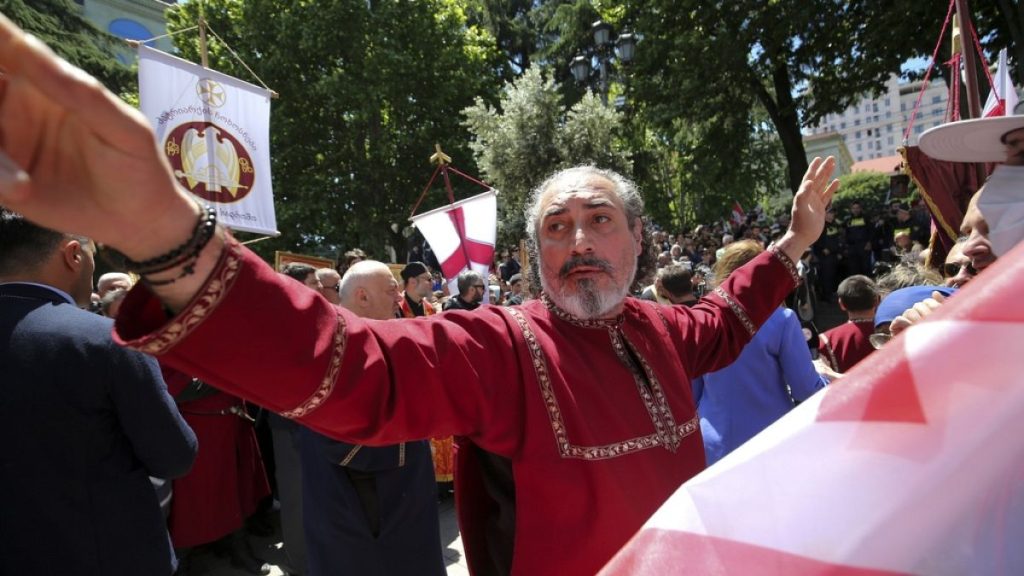The controversial anti-LGBTQ+ rights bill in Georgia, which includes bans on same-sex marriages, adoptions by same-sex couples, and restrictions on the depiction of LGBTQ+ couples in the media, was signed into law by the parliament speaker after President Salome Zourabichvili refused to endorse it. The legislation also prohibits gender-affirming care and changing gender designations on official documents, impacting transgender people and contributing to anti-LGBTQ+ hate crimes in the country. The bill was initially introduced by the ruling Georgian Dream party, who argued that it aimed to protect traditional values in the Orthodox country. The move has been strongly criticized by human rights and LGBTQ+ groups, who view it as a step backward for LGBTQ+ rights in the country.
President Salome Zourabichvili, who is pro-European, has been in conflict with the governing party over controversial laws, including the anti-LGBTQ+ rights bill and the “foreign influence” law that requires media and non-governmental organizations to register if they receive funding from abroad. Critics have likened these laws to Russian legislation that marginalizes vulnerable groups and suppresses dissent. The passing of such laws is seen as a threat to Georgia’s aspirations to join the EU, as Brussels has suspended financial support for the country in response. The United States has also imposed sanctions on Georgian officials in response to the legislation, which has stirred up violence and discrimination against the LGBTQ+ community in the country.
The anti-LGBTQ+ bill has faced widespread opposition from human rights advocates, LGBTQ+ groups, and international bodies. The move is seen as an attempt by the ruling party to rally popular support ahead of the upcoming parliamentary elections. Experts have suggested that the legislation is rooted in traditional values and seeks to uphold Christian, Georgian, and European beliefs. However, critics argue that the law discriminates against LGBTQ+ individuals, particularly transgender people, and contributes to a hostile environment that fuels hate crimes and violence against the community.
The LGBTQ+ community in Georgia has faced demonstrations and violence, even before the anti-LGBTQ+ bill was approved. In a tragic incident, transgender actress and model Kesaria Avramidze was stabbed to death in her apartment in Tbilisi just a day after the legislation was passed. Human rights advocates have linked this act of violence to the marginalization and discrimination faced by LGBTQ+ groups in the country. Tbilisi Pride head Tamar Jakeli has warned that laws like the anti-LGBTQ+ bill are likely to increase physical attacks and violence against LGBTQ+ individuals in Georgia. The bill has sparked international condemnation, with concerns raised about the impact on Georgia’s relationships with the EU and the United States.
The passing of the anti-LGBTQ+ bill in Georgia is seen as a setback for LGBTQ+ rights and human rights in the country. The legislation reinforces discrimination and marginalization of LGBTQ+ individuals, particularly transgender people, and contributes to a hostile environment that fosters hate crimes and violence. The move has been met with opposition from international bodies, human rights advocates, and LGBTQ+ groups, who condemn the law as regressive and harmful. The conflict between President Zourabichvili and the ruling party over controversial legislation highlights the political tensions in Georgia, as the country grapples with issues of human rights, LGBTQ+ rights, and its aspirations to join the EU. The tragic death of Kesaria Avramidze underscores the grave consequences of such discriminatory laws and the urgent need for greater protections for LGBTQ+ individuals in Georgia.


